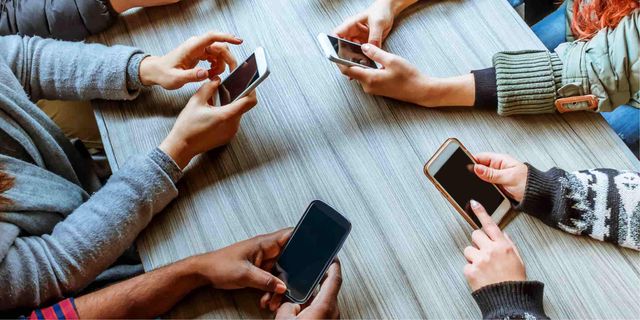The UK’s Worker Protection Act came into force last October; now is the time for all employers to act.
Isn’t our 24/7 modern world amazing?
Connection with people anytime, anywhere. Entertainment, information, the world’s news is always at our fingertips - we need never be bored again! We can enjoy incredible freedom and flexibility at work, taking the office with us in our pockets and handbags. No matter where we are or what we are doing our colleagues and clients can get hold of us. We are accessible all the time.
Amazing? Do our devices really make lives easier, simpler and less stressful when work emails can be sent and received whilst putting the kids to bed or down the pub watching the game?
As evidence about the negative effects of smartphones and other digital technology mounts, companies need to consider how their staff manage the digital distractions, both at work and at home, to help them in an age when information overload and work-life balance is at crisis point.
The introduction of the smartphone has meant that boundaries between professional and personal life are blurred as never before and it has taken a heavy toll on employees’ health. Sir Cary Cooper, professor of organisational psychology and health at Lancaster University, has spoken about an “email epidemic” damaging UK productivity. A culture has developed where employees increasingly feel the need to be available around the clock, where responsiveness is too often equated to commitment, and increased stress, poor sleep, burnout and ill health are the inevitable price. Employees working long hours is nothing new, but in a digital age where individuals can be contactable and engage 24/7, arousal levels are continually peaked and the mind has no time for recovery.
In February last year AXA PPP published the results of a study monitoring the stress levels of staff at the London offices of a leading global bank, which found that half its employees suffered dangerously high levels of stress outside of the office, as they failed to balance their home and work lives.
Many companies use a plethora of digital tools designed to increase communication and efficiency, cross time zones, enable us to work anywhere. Despite this global productivity is at an all-time low with just 11% of European workers claiming to feel highly productive. At the start of this year Microsoft carried out a study on 20,000 staff in 21 countries surveying them about their technology usage. Findings showed that many participants said a steady stream of emails, messages and notifications kept them from concentrating. Others said the way their employer used technology stopped them being productive.
Neuroscientists believe the digital age is having a negative impact on our cognitive abilities. Our ability to concentrate, to think deeply, to be creative, to have space in our mind to have independent thought is incredibly difficult in a world where numerous streams of technology compete for our attention and constantly distract us. Bank of England strategist Dan Nixon spoke of a ‘crisis of attention’ in the UK making a direct correlation to the sales of smartphones and a decrease in productivity in the UK.
And focus is not just good for productivity but for our mental health. We are happiest in a state of flow, deeply absorbed in our work and it is here where we find purpose and truly feel like can make a contribution within our roles.
Employers in some European countries have been quicker to respond to this modern problem than UK organisations. Volkswagen Germany decided in 2012 to turn off emails to work phones outside working hours, while in 2014, German car manufacturer Daimler introduced the auto-deletion of emails sent during an employee’s holiday. Meanwhile, just last year, France introduced a new ‘right to disconnect’ law, requiring companies with more than 50 workers to draw up a charter of good conduct, setting out the hours when staff should neither send nor answer emails.
It is time for businesses to openly and constructively address the inevitable challenges that new technologies present. There is an increasing need for companies to develop a strong digital culture where people feel supported and empowered to use the digital tool available to them to make work more meaningful and efficient and where they understand expectations about when they can switch off.
Byrne Dean have recently teamed up with Shine Offline who help train individuals and organisations how to take back that control we seem to have lost - to better understand and manage our relationship with our phones and our lives online and develop a strong digital culture. We are holding an open session to showcase their work at our WeWork offices in Moorgate on 19 September at 9am. Booking details are here. Come along - it is free, will give you some quality time off line and may just change your life - at the very least it will make you think a bit!
This blog was authored by our friends at Shine Offline.
Related Articles

Guest Q&A – Visa’s Vice President of Regulatory Law in UK and Europe

Guest Q&A – Hasting Direct’s Wellbeing Manager

Confronting loneliness: our shared responsibility


Forbes: Tackling loneliness in remote working
Our expert Amanda Okill tells Forbes what actions organisations and individuals can take.





